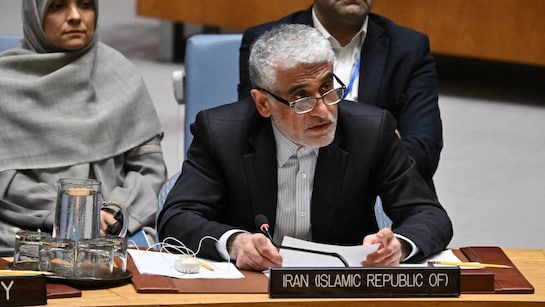Tehran – In a dramatic escalation of tensions, Iranian President Masoud Pezeshkian has reportedly ordered the suspension of his country’s cooperation with the International Atomic Energy Agency (IAEA), the UN’s nuclear watchdog, following recent American airstrikes on key Iranian nuclear facilities, reported the NDTV.
State media confirmed that President Pezeshkian’s directive came after Iran’s parliament passed a bill mandating the cessation of cooperation with the IAEA — a bill already approved by Iran’s constitutional watchdog. While the practical implications for the IAEA remain unclear, the move marks a significant blow to international efforts to monitor Iran’s nuclear activities.
The Vienna-based IAEA, which has long overseen Iran’s nuclear program, did not immediately respond to requests for comment.
The Supreme National Security Council of Iran, which is tasked with overseeing the bill’s implementation, has yet to issue a public statement. However, since Pezeshkian also heads the council, his reported order is seen as a signal that the bill will indeed be enforced.
Under Iran’s theocratic system, the council holds discretion in how such laws are implemented, meaning the full extent of parliamentary demands may not be realized in practice.
Iran’s 2015 nuclear agreement with global powers — negotiated under former U.S. President Barack Obama — allowed uranium enrichment up to 3.67%, sufficient for nuclear power generation but far below the 90% threshold for weapons-grade material. It also capped Iran’s uranium stockpile and restricted centrifuge use, with IAEA inspectors granted broader oversight rights.
However, in 2018, then-President Donald Trump unilaterally withdrew the United States from the accord, criticizing it as too lenient and failing to address Iran’s missile development and regional militancy. This triggered years of growing hostility and military confrontations, including attacks both on land and at sea.
In recent years, Iran has increased enrichment levels up to 60%, alarmingly close to weapons-grade capability, and accumulated a stockpile large enough to potentially produce multiple nuclear bombs. While Tehran maintains that its nuclear ambitions are peaceful, the IAEA and Western intelligence agencies assert that Iran had an active nuclear weapons program until 2003.
This latest development risks further destabilizing the already fragile nuclear oversight framework and raises fears of a renewed nuclear crisis in the Middle East.




